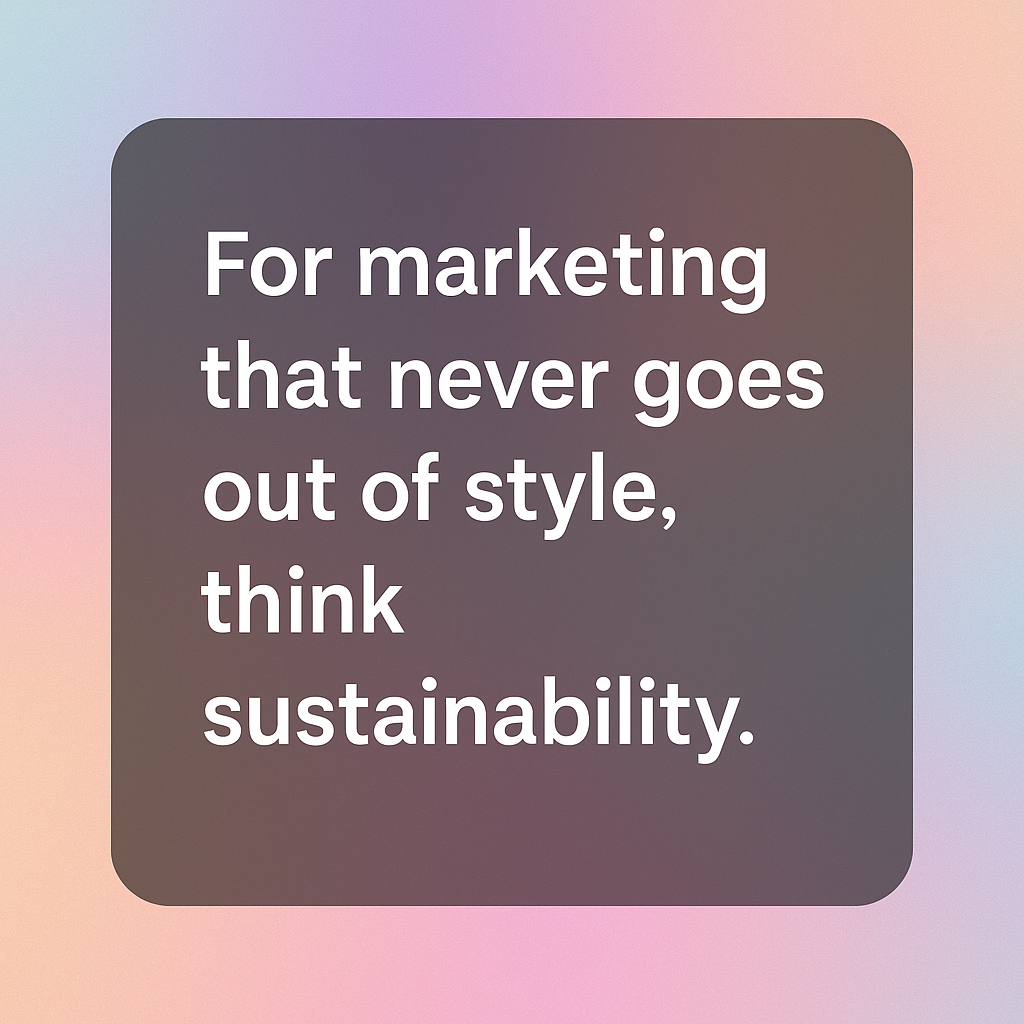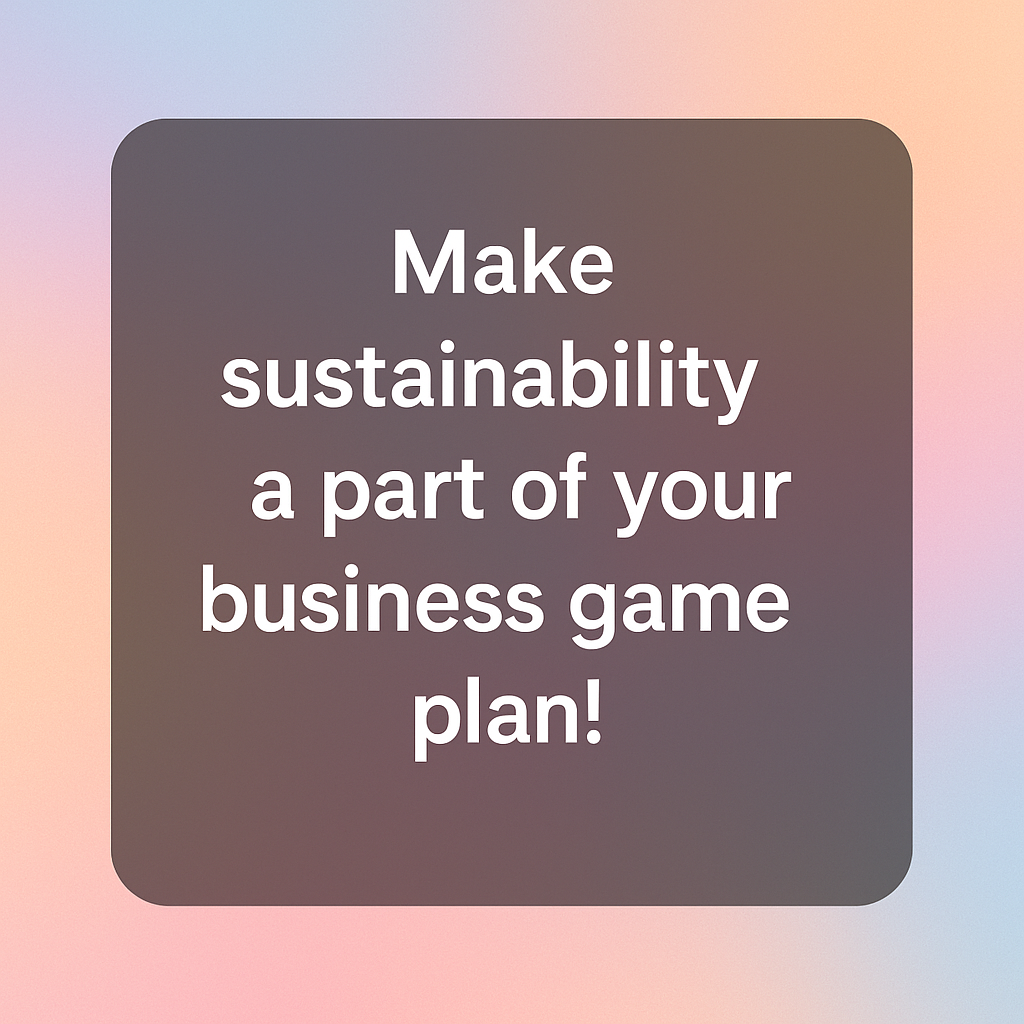
Did you know that over 60 percent of global consumers now expect businesses to take action on sustainability? Growing demand for responsible business has shifted how entrepreneurs and freelancers operate. Making sustainable choices not only protects the environment but also builds stronger trust with clients and helps your business thrive in a crowded market. Learning how to balance profit, ethics, and impact can set you apart from the competition and create long-term value.
Key Takeaways
| Point | Details |
|---|---|
| Integration of Sustainability | Organizations should embed environmental, social, and economic considerations into core decision-making for responsible entrepreneurship. |
| Triple Bottom Line | Achieving profit, protecting people, and preserving the planet is essential for sustainable business practices. |
| Operational Efficiency | Implementing sustainable strategies can streamline operations, cut costs, and improve workflow for solopreneurs and freelancers. |
| Challenges and Solutions | Entrepreneurs face obstacles like balancing profitability with sustainability but can overcome them through continuous learning and transparent practices. |
Table of Contents
- What Are Sustainable Business Practices?
- Types of Sustainability in Business
- Key Benefits For Solopreneurs and Freelancers
- Implementing Sustainable Practices In Daily Operations
- Common Challenges and How to Overcome Them
What Are Sustainable Business Practices?
Sustainable business practices represent a strategic approach where organizations integrate environmental, social, and economic considerations into their core decision-making processes. According to Harvard Business School research, this approach means operating without harming the environment or society while maintaining a critical balance between economic performance and ethical responsibility.
The fundamental goal of sustainable business practices is achieving what experts call the triple bottom line: generating profit while simultaneously protecting people and the planet. As research from Wikipedia indicates, this involves practical strategies such as:
- Going paperless to reduce environmental waste
- Using non-toxic materials in production
- Implementing circular economy models
- Revising production processes to minimize resource consumption
- Improving stakeholder trust through transparent environmental, social, and governance (ESG) metrics
For solopreneurs and freelancers, sustainable practices aren’t just about environmental stewardship. They represent smart business strategies that can differentiate your brand, attract conscientious clients, and create long-term value. By embedding sustainability into your core operations, you demonstrate a commitment to responsible entrepreneurship that goes beyond immediate financial gains.
Types of Sustainability in Business
Sustainability in business is not a monolithic concept but a multidimensional approach that encompasses environmental, social, and economic considerations. According to scholarly research published in sustainability journals, these dimensions represent interconnected strategies that go beyond traditional business models.
The three primary types of sustainability in business include:
Here’s a comparison of the three types of sustainability in business:
| Sustainability Type | Core Focus | Example Strategies |
|---|---|---|
| Environmental | Eco-friendly operations | Reduce energy use Minimize waste Use renewables |
| Social | People and community impact | Fair labor Diversity initiatives Community support |
| Economic | Long-term financial viability | Ethical investing Sustainable profits Resilient models |
Environmental Sustainability: Focuses on reducing carbon footprint, minimizing waste, conserving natural resources, and implementing eco-friendly practices. As research from Wikipedia indicates, this involves strategies like reducing energy consumption, using renewable resources, and designing circular business models that prioritize recycling and regeneration.
Social Sustainability: Centers on human rights, fair labor practices, community engagement, and ethical workforce management. This dimension ensures businesses create positive social impact by supporting fair trade, promoting diversity, protecting worker rights, and contributing to community development.
Economic Sustainability: Involves creating long-term economic value while maintaining ethical financial practices. This approach balances profitability with responsible economic strategies that support stakeholder interests, invest in sustainable innovations, and create resilient business models.
For solopreneurs and freelancers, understanding these sustainability dimensions means recognizing that ethical business practices are not just altruistic ideals but strategic advantages. By integrating these principles, you can differentiate your brand, attract conscientious clients, and build a business model that contributes positively to broader societal and environmental goals.

Key Benefits for Solopreneurs and Freelancers
Sustainable business practices offer transformative advantages for solopreneurs and freelancers beyond traditional environmental considerations. According to research from solo business experts, implementing sustainability strategies can create significant operational and competitive advantages.
The key benefits include:
Cost Reduction: Sustainable practices directly impact your bottom line. As research from Solo Business Mind indicates, strategies like reducing material waste, improving energy efficiency, and choosing eco-friendly suppliers can generate substantial cost savings.
Brand Differentiation: In a crowded market, sustainability becomes a powerful differentiator. Clients increasingly value working with professionals who demonstrate environmental consciousness and ethical business approaches. Your commitment to sustainable practices can attract more conscientious clients and set you apart from competitors.
Operational Efficiency: Sustainable methods often streamline your workflow. Freelance productivity strategies combined with sustainable approaches can help you work smarter, reduce unnecessary resource consumption, and create more streamlined business processes.
For solopreneurs working from home, sustainability also means practical energy management. Research suggests simple steps like maximizing natural light, using energy-efficient equipment, and avoiding unnecessary power consumption can significantly reduce both environmental impact and operational expenses. By integrating these practices, you’re not just running a business—you’re building a responsible, forward-thinking professional brand.

Implementing Sustainable Practices in Daily Operations
Sustainable business operations require strategic and intentional approaches that transform everyday work habits into environmentally conscious practices. According to research from solo business experts, implementing sustainability is less about massive overhauls and more about consistent, incremental changes.
Key strategies for daily sustainable operations include:
Digital Efficiency: Embrace paperless systems, use eco-friendly web hosting, and manage electronic waste responsibly. This not only reduces environmental impact but also streamlines your workflow.
Energy Management: Utilize energy-efficient technologies like LED lighting, smart thermostats, and renewable energy sources. These small changes can significantly reduce both your carbon footprint and operational expenses.
Sustainable Sourcing: Prioritize eco-friendly and local suppliers who align with your sustainability goals. Learn more about building a conscious business model that supports ethical supply chains.
For solopreneurs and freelancers, sustainability is about creating a holistic approach that integrates environmental consciousness into every aspect of business. By making mindful choices in daily operations—from your digital tools to your energy consumption—you demonstrate a commitment to responsible entrepreneurship that resonates with modern clients and contributes to broader environmental goals.
Common Challenges and How to Overcome Them
Sustainable business practices present unique challenges for solopreneurs and freelancers navigating the complex landscape of environmental responsibility. According to research, the primary obstacles include balancing profitability with sustainability goals and avoiding the pitfalls of greenwashing.
Key challenges and strategic solutions include:
Profit vs. Sustainability: Many entrepreneurs worry that sustainable practices might compromise financial performance. However, research indicates that improved environmental strategies often correlate positively with economic outcomes. The key is implementing innovative, cost-effective sustainability approaches.
Avoiding Greenwashing: Maintaining authenticity is crucial. As legal research suggests, businesses must provide clear, transparent sustainability claims to build consumer trust. Developing a growth mindset can help you approach sustainability as a continuous learning process.
Capability Transformation: Integrating sustainable practices requires new skills and perspectives. This might involve retraining, adopting new technologies, or redesigning existing business processes to align with environmental goals.
For solopreneurs, overcoming these challenges means embracing continuous learning, staying transparent about sustainability efforts, and viewing environmental responsibility as a strategic advantage rather than a burden. By consistently improving and communicating your sustainable practices, you can build a business model that is both economically viable and environmentally conscious.
Transform Your Sustainable Vision Into Real Business Growth
Tired of navigating the challenges of sustainable business practices alone? You want to reduce waste, cut costs, attract ethical clients, and streamline operations, but limited resources and time often get in the way. Achieving the triple bottom line should not require juggling endless tools or struggling with complex tech. Imagine running your business with ease, while maintaining environmental responsibility and supporting your clients with purpose.

Take the leap and let Fluum.ai become your AI-powered co-founder. Manage your sales, clients, payments, and marketing in one place and put your focus back on what matters. With customizable templates, expert business growth guides, and seamless integrations, Fluum gives you everything you need to build a sustainable, efficient solo business. Ready for less waste and more growth? Explore pricing plans and visit our business growth guides to start elevating your mindful brand today.
Frequently Asked Questions
What are sustainable business practices?
Sustainable business practices involve integrating environmental, social, and economic considerations into decision-making processes, aiming to achieve a balance between profit, responsible environmental stewardship, and social equity.
How can solopreneurs implement sustainable practices in their operations?
Solopreneurs can implement sustainable practices by embracing digital efficiency, managing energy use responsibly, sourcing from eco-friendly suppliers, and making consistent, incremental changes in daily operations to reduce their environmental impact.
What are the benefits of sustainable business practices for freelancers?
The key benefits include cost reduction through improved efficiency, brand differentiation that attracts conscientious clients, and enhanced operational efficiency by streamlining workflows and resource management.
What challenges do solopreneurs face when adopting sustainable business practices?
Common challenges include balancing profitability with sustainability goals, avoiding greenwashing by maintaining authenticity in sustainability claims, and the need for capability transformation through retraining and adopting new technologies.
Recommended
- Fluum | Effective Stress Management Techniques for Busy Professionals
- Fluum | How to Onboard Clients Effectively for Lasting Success
- Fluum | Master Managing Multiple Projects for Success
- Fluum | Build Your Brand with a Branding Builder in 2025
- Fluum | 7 Customer Retention Examples to Boost Your Business



